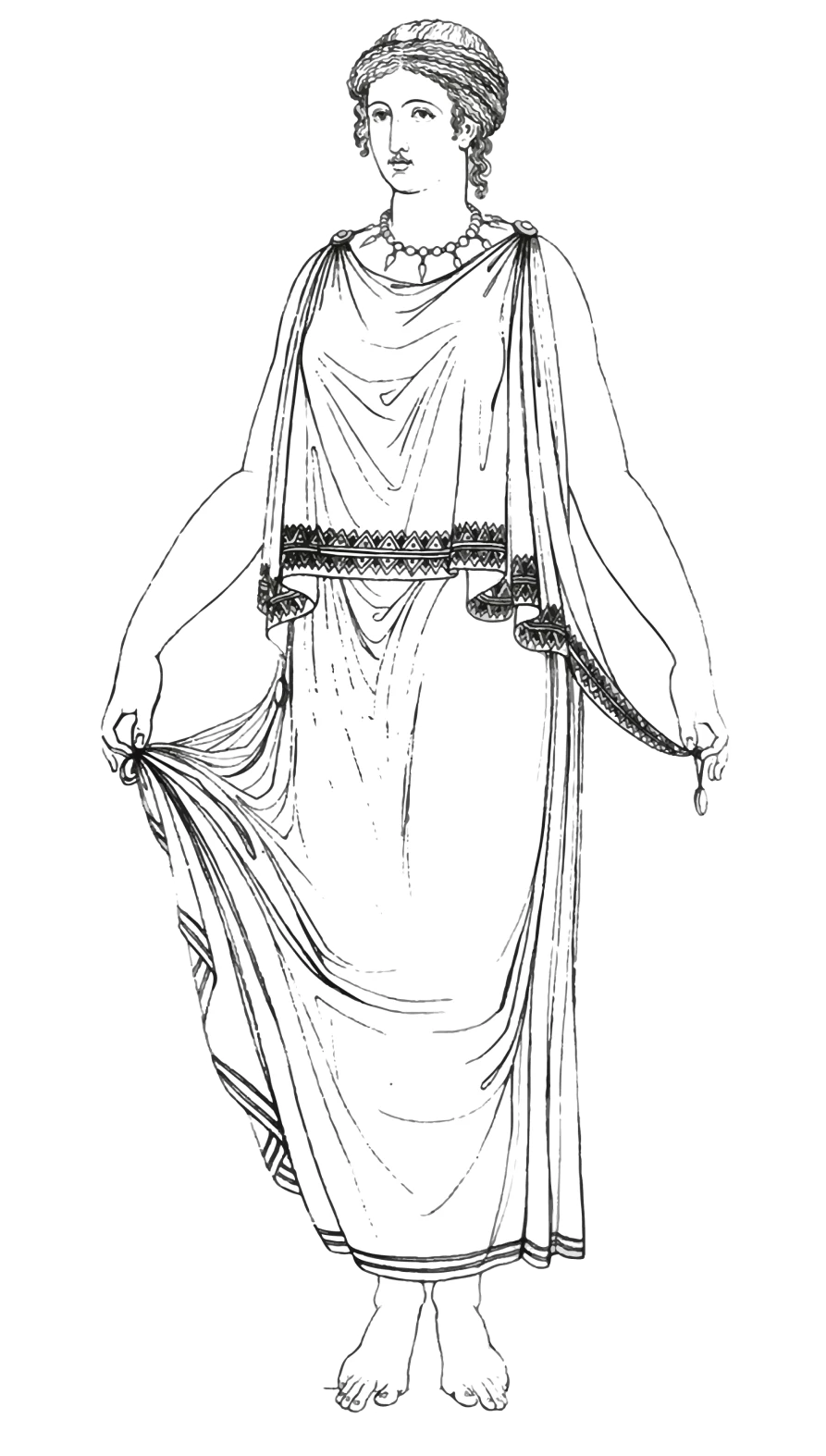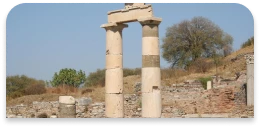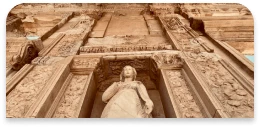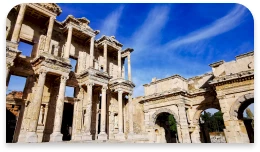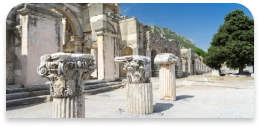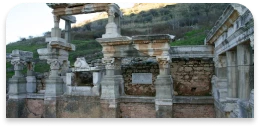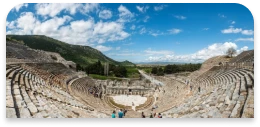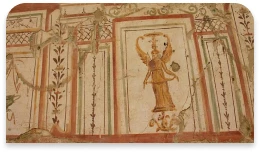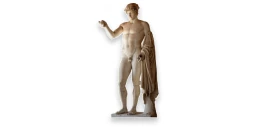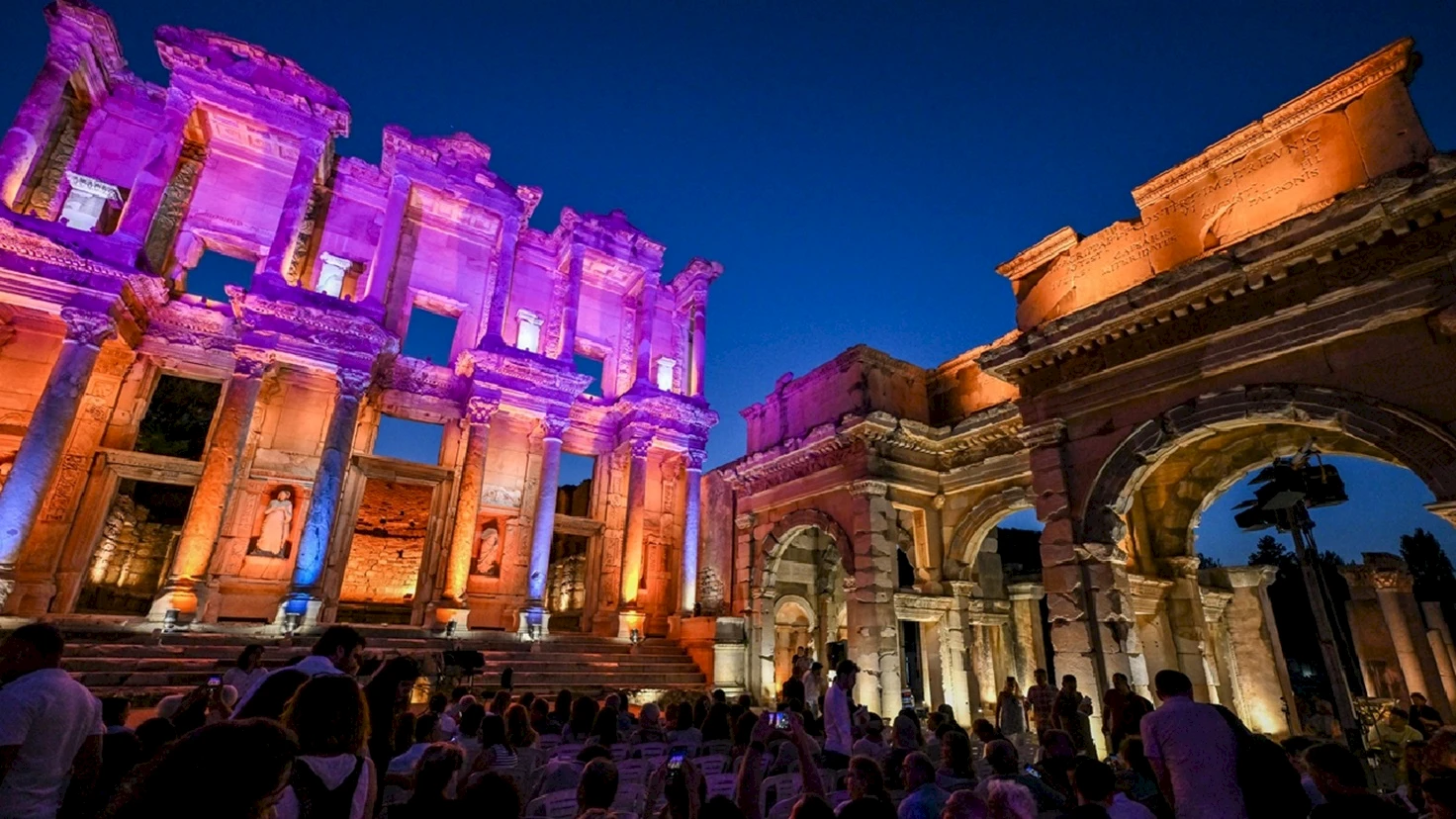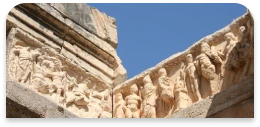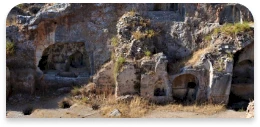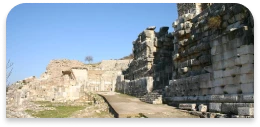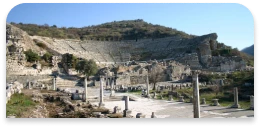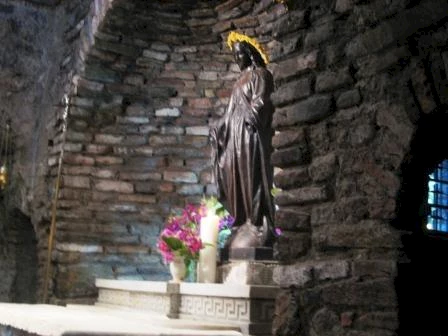Daily Life in Ephesus
People in Ephesus had Greek and Roman cultures and the lifestyles. They had to wear “white colored toga”, a sort of dress when they were adolescent in Roman time. In Greek period they had different type of dresses similar with toga. The age of puberty was 14 for boys, 12 for girls.
Ephesians had sundials and also water clocks in rainy and foggy days to understand the time of the day. Having such a clock at home was a sign of the wealth of family among Ephesians. In Ephesus Museum you can see nice examples of sundials. Mostly people got up at sunrise in Greek and Roman time but Roman city life was more colorful than Greeks because of their festivals.
Greek girls’ education was not really considered but boys were sent to the gymnasium at the age of seven to learn music and how to read and write. In Roman time both girls and boys attended primary school together at the age of seven. At the gymnasiums, the students used to study history, music, logic, astronomy, Greek language, poetry, units of measurement, philosophy, mathematics, mythology, etc. Reading and writing were learned by numerous people in Roman times. If the child was born as disabled, the father could reject him or her. In this case, the baby was either sold or left in the agora. In later centuries due to poverty, it became common and legal to sell newborn children.
Greeks and Romans have the same sort of calculation. Daily selling and buying were basically conducted by counting on their fingers but for the calculation of big numbers over thousands they were showing a specific organ with their fingers and each organ had a certain number meaning.
They had a tradition to sacrifice animals for their gods and goddesses during daily ceremonies, festivals, celebrations etc. The life of people in ancient times was connected with God and Goddesses and almost each ancient city had a cult center dedicated to one of the god or goddess. InEphesus, they had the temple for their Goddess Artemis.
During ancient times people believed in reincarnation and when someone died his body would be either buried or cremated in the cemetery. Because of reincarnation belief, they put some of the belongings he/she had used and liked.
There were not public baths until the Late Greek period but then baths were built and especially in Roman times baths became one of the most popular buildings in the cities. During the day and night, baths were open but women and men were not allowed to bathe together. Women and children could go to the bath in free charge during 7 hours after sunrise and then men could go with paying an entrance fee. Especially Romans enjoyed arranging eating and drinking parties in the baths.
